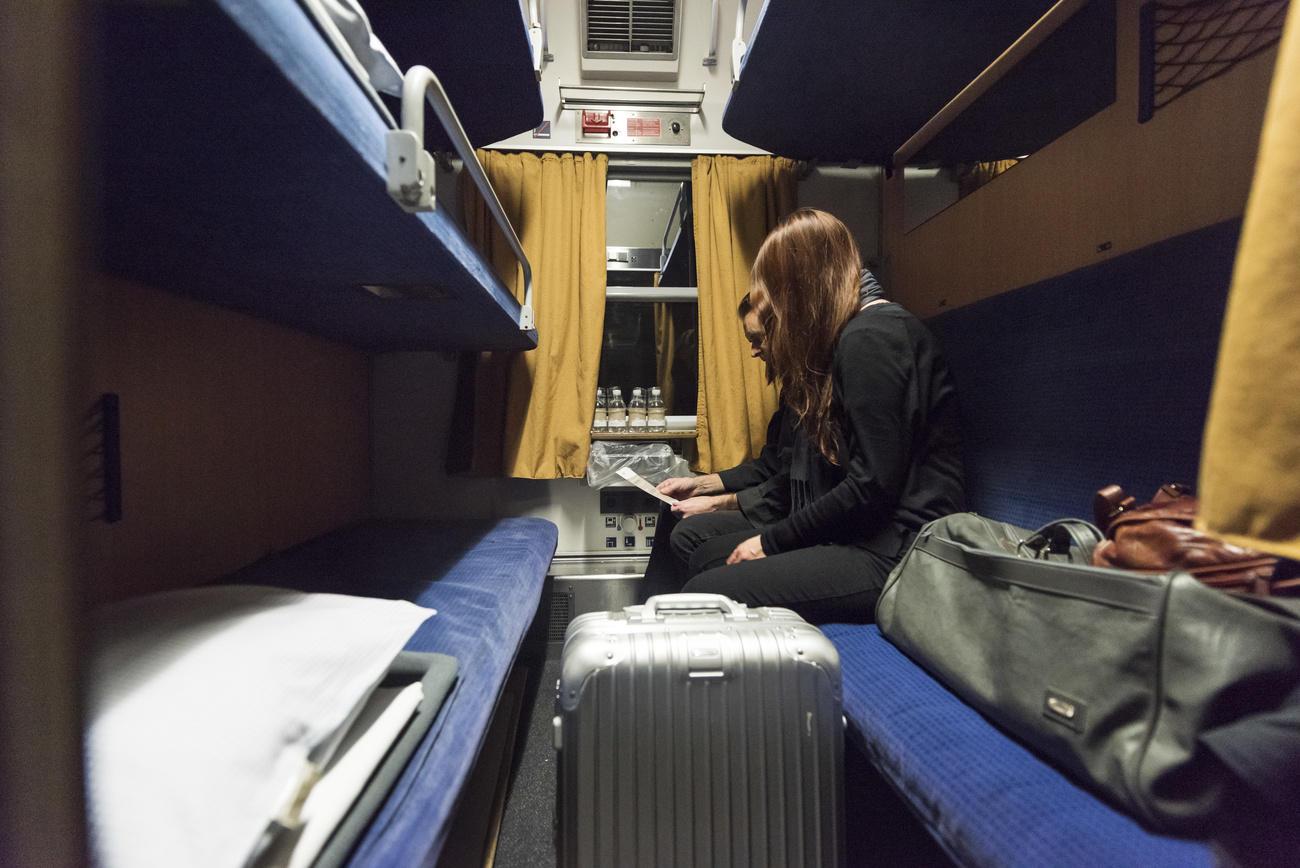
European countries give backing for more night-train services

Switzerland, Austria, France and Germany have pledged to increase cooperation on large-scale cross-border and night-train networks over the next four years.
In a memorandum of understanding signed by transport ministers on Tuesday, the countries said they would build on the “Trans-Europe-Express” project, spearheaded at the European level by Germany.
The projects foresee a rejuvenation of the trans-continental network first elaborated between the 1950s and the 1980s. The cooperation will this time be guided by environmental concerns, under the motto “train before plane”.
“By increasing the number of night trains and major routes, we are also contributing to climate protection goals,” said Peter Füglistaler, head of the Swiss Federal Transport Office, who represented Transport Minister Simonetta Sommaruga at the meeting.

More
Swiss night trains: past, present and future
From December 2021, night trains should be up and running on the Vienna-Munich-Paris and Zurich-Cologne-Amsterdam routes, Reuters reports. By 2023, connections from Vienna and Berlin to Brussels and Paris will follow, and by the end of 2024 it should be possible to travel overnight from Zurich to Barcelona.
Tuesday’s declaration of intent widens the cooperation which Switzerland had planned with Austria’s ÖBB rail network, announced in September.
Until the coronavirus arrived at the beginning of 2020, demand for night-trains was rising steadily, according to the Swiss Federal Railways. Its CEO Vincent Ducrot said on Tuesday that this demand – based on “respect for the climate and the economisation of resources” – would continue to increase after the pandemic has been overcome.
Rise and fall, and rise
The dismantling of the Swiss sleeper network began 15 years ago, and since then more and more direct overnight routes have disappeared. Previous destinations such as Brussels, Rome, Barcelona, Moscow and Copenhagen are no longer on the timetable.
In 2009 Swiss Federal Railways ended its night-train service with its own sleepers and German Railways did the same in 2016. Austrian Federal Railways took over some of the routes.

More
How to behave on a Swiss train

In compliance with the JTI standards
More: SWI swissinfo.ch certified by the Journalism Trust Initiative





























You can find an overview of ongoing debates with our journalists here . Please join us!
If you want to start a conversation about a topic raised in this article or want to report factual errors, email us at english@swissinfo.ch.